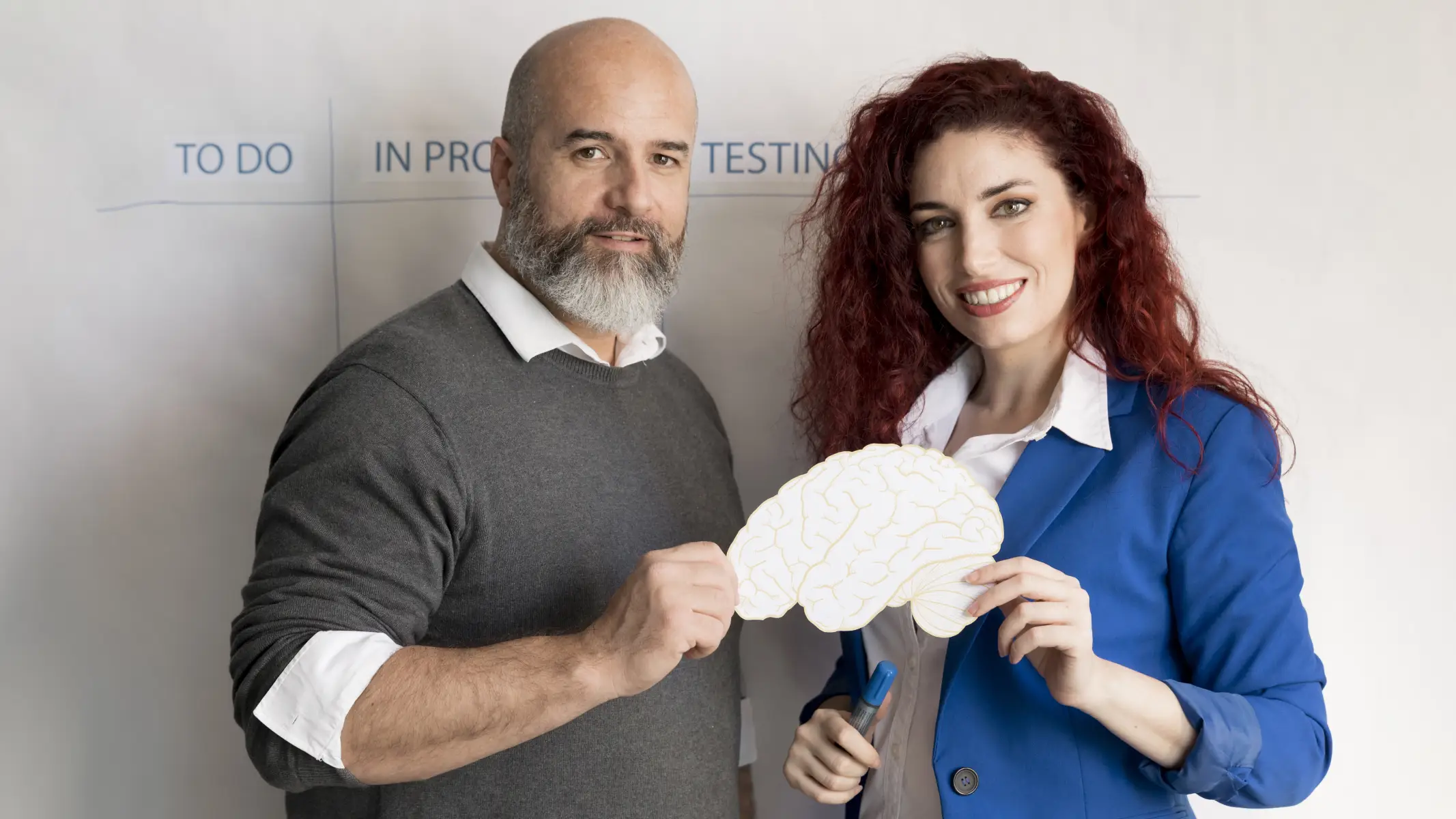A Whitepaper for UK Business Professionals
Executive Summary
Modern business environments expose organisations and professionals to constant change, pressure, and uncertainty. To succeed, companies need resilient leaders and teams who embrace challenge, learn from setbacks, and adapt to adversity. The concept of a growth mindset, pioneered by psychologist Carol Dweck, provides a powerful cognitive foundation for the development of psychological resilience in the workplace. This whitepaper explores the science behind growth mindset, its profound impact on resilience, and practical strategies for embedding these approaches within UK organisations.
SEO focus: growth mindset, psychological resilience, resilient leadership, UK workplace wellbeing, mindset training, bounce back at work, business challenges, leadership development, learning culture, mental toughness, growth mindset UK.
Table of Contents
- Introduction: The Business Imperative for Resilience
- Defining Growth Mindset and Fixed Mindset
- The Science of Growth Mindset: Research Highlights
- Connecting Growth Mindset and Psychological Resilience
- Growth Mindset in Action: Impact on Business Outcomes
- Embedding Growth Mindset in UK Workplaces
- Overcoming Barriers: Mindset Myths and Organisational Challenges
- Practical Strategies and Tools for Leaders and Teams
- Case Studies: UK Organisations Building Resilience Through Growth Mindset
- Measuring Success: Metrics for Growth Mindset and Resilience
- Further Resources and Reading
- Conclusion: From Mindset to Competitive Advantage
Introduction: The Business Imperative for Resilience
Unpredictable markets, technological disruption, and global events such as the COVID-19 pandemic have underscored the need for psychological resilience at every level of the modern organisation. According to the Chartered Institute of Personnel and Development (CIPD), resilient employees are significantly more engaged, adaptable, and productive. However, resilience cannot be imposed; it must be cultivated from within — and the mindset we bring to challenges is crucial.
The growth mindset offers a foundation for this. Leaders who foster a growth mindset culture unlock vital capabilities: embracing new learning, reframing setbacks as opportunities, and persisting with optimism even under pressure. This whitepaper explains why growth mindset matters, how it drives resilience, and what UK businesses can do to develop and sustain it.
Defining Growth Mindset and Fixed Mindset
A growth mindset is the belief that skills and intelligence can be developed through effort, good strategies, and feedback.
By contrast, a fixed mindset holds that intelligence and abilities are static — that success depends purely on innate talent.
Key distinctions:
| Growth Mindset | Fixed Mindset |
|---|---|
| Views challenges as opportunities | Avoids challenges |
| Persists through setbacks | Gives up easily |
| Sees effort as a path to mastery | Views effort as fruitless |
| Learns from criticism | Ignores or resents feedback |
| Inspired by others’ success | Feels threatened by it |
Original research by Dr Carol Dweck outlines the transformational potential of mindsets in every domain — sports, education, and, most powerfully, business.
The Science of Growth Mindset: Research Highlights
Key Findings
- People with growth mindsets show greater resilience, performance, and innovation (Dweck, 2006).
- Growth mindset interventions can measurably improve workplace outcomes, from employee wellbeing to profitability (HBR, 2014).
- A 2021 study across UK organisations (CIPD) found that teams encouraged to adopt growth mindset values bounced back faster from pandemic-related disruption, compared to their fixed mindset peers.
Neuroscientific Insights
Brain imaging reveals that people primed to use a growth mindset show higher cognitive flexibility and greater activity in learning-focused brain areas during challenge (Blackwell et al., 2007).
Corporate Case Studies
Microsoft credits its culture shift to growth mindset principles for a turnaround in innovation and cross-team collaboration (HBS, 2020).
Connecting Growth Mindset and Psychological Resilience
Psychological resilience is the capacity to withstand, adapt, and recover from stress, setbacks, or adversity.
A growth mindset builds resilience by:
- Reframing adversity as a learning experience rather than a catastrophe
- Emphasising effort and strategy over fixed talent — setbacks become data, not definitions of worth
- Normalising feedback and self-reflection as vital for growth
- Encouraging optimistic explanatory styles—focusing on what can be influenced
This makes individuals more likely to bounce back from setbacks and organisations more capable of adapting to change.
As summarised in the Positive Psychology UK resource library, fostering a growth mindset can measurably reduce stress and support better wellbeing.
Growth Mindset in Action: Impact on Business Outcomes
Enhanced Adaptability
Growth mindset teams quickly adapt to new technology, processes, and market shifts. They embrace change as a challenge to master, not a threat.
Increased Innovation
By viewing problems as puzzles to be solved, employees take more creative risks and collaborate more closely.
Better Engagement and Performance
Growth mindset predicts higher employee motivation and satisfaction. Staff feel empowered to upskill and experiment, driving higher productivity.
Reduced Absenteeism and Burnout
Workplaces supporting resilience through mindset see less emotional fatigue, because setbacks are addressed openly and positively (Mental Health Foundation UK).
Stronger Leadership Pipelines
Growth mindset cultures create more skilled, diverse future leaders through inclusive development and coaching.
Embedding Growth Mindset in UK Workplaces
Building a growth mindset culture requires intentional, visible leadership and practical processes:
Leadership Commitment
Leaders must walk the talk, openly sharing their own learning journeys, embracing failure as a teacher, and rewarding effort and improvement.
Recruitment, Onboarding and Development
- Hire and promote for mindset as well as technical skill. Ask candidates about their learning from failure, not just their successes.
- Onboard with messaging about learning, experimentation, and growth over perfection.
Performance Management
- Base appraisals on effort, persistence, and adaptability — not just raw output.
- Recognise and reward employees who seek feedback, demonstrate grit, and help others learn.
L&D Initiatives
Offer formal growth mindset training (see Mindset Works UK), resilience workshops, and reflective practices such as journalling or after-action reviews.
Feedback and Psychological Safety
- Build feedback into daily work routines.
- Train managers to give learning-focused feedback, and to respond positively to ideas and mistakes (Harvard Business Review: Psychological Safety).
Communication
- Cultivate a growth narrative: update ‘hero stories’ to focus on learning from challenge, not innate brilliance.
- Encourage peer sharing of learning experiences and “productive failures”.
For further detail, consult CIPD’s Growth Mindset and Resilience Guidance.
Overcoming Barriers: Mindset Myths and Organisational Challenges
The “Growth Mindset = Positivity” Trap
Growth mindset isn’t blind optimism — it acknowledges challenge, embraces discomfort, and values honest assessment.
Surface Adoption
Mindset interventions fail if tokenistic. Posters alone do not change behaviour. Success depends on systems, values, and sustained role modelling.
Fear of Failure and Blame Cultures
Business cultures hostile to risk or failure crush learning. Leaders must reframe mistakes as data for improvement rather than career killers.
Short-Termism
Resilience through mindset is a long-term investment. Companies must commit resources and patience to develop true culture change.
Practical Strategies and Tools for Leaders and Teams
For Leaders
- Use “What can we learn from this?” in post-mortems
- Publicly share your own ongoing learning or past failures
- Provide time and space for experimentation — e.g. innovation days or hackathons
- Set nuanced goals: Include targets for learning, skill development, and process improvement
For Teams
- Introduce peer learning groups or feedback buddies
- Embed regular “growth check-ins” — not just “what went well,” but “what stretched us?”
- Encourage reflective journalling
- Use tools like Mind Tools – Growth Mindset Resources
For HR and L&D
- Review and update appraisal, reward, and promotion criteria to recognise learning, collaboration, and resilience
- Commission mindset and resilience training from accredited UK providers (see ILM Courses)
- Utilise digital learning platforms with growth mindset content (e.g. LinkedIn Learning)
Case Studies: UK Organisations Building Resilience Through Growth Mindset
- BT (British Telecommunications)
Deployed a company-wide resilience and growth mindset training, combined with leadership coaching. Reported 20% reduction in stress-related absence and faster new tech adoption. - NHS Leadership Academy
Rollout of growth mindset frameworks in nurse and doctor development. Focused on error-reporting as learning, not blame. Resulted in more innovation and engagement, with improved patient outcomes. - Manchester-based Tech SME
Shifted from a performance-only review process to a dual focus on learning goals and personal experimentation. Employee engagement and retention rose sharply.
Further UK examples can be found at Engage for Success: Case Studies.
Measuring Success: Metrics for Growth Mindset and Resilience
Quantitative Measures
- Employee engagement and resilience survey scores
- Uptake of training and development opportunities
- Uptick in innovation-driven KPIs: new ideas submitted, projects iterated, cross-departmental collaboration
- Decreased absenteeism or “presenteeism”
- Retention and internal mobility rates
Qualitative Indicators
- Employee stories of overcoming challenge and sharing learning
- Feedback on psychological safety and openness to experimentation
- Leadership assessment of employee adaptability and grit
CIPD’s Measuring Employee Engagement factsheet covers practical survey methods.
Further Resources and Reading
- Mind – Resilience at Work
- CIPD – Bounce Back UK Report
- Harvard Business Review – Growth Mindset Articles
- Mindset Works UK
- Institute of Leadership & Management – Mindset Training
- Gallup – Gallup Workplace UK
Books:
- “Mindset: Changing the way you think to fulfil your potential” — Carol S. Dweck
- “Option B: Facing Adversity, Building Resilience, and Finding Joy” — Sheryl Sandberg & Adam Grant
- “Grit: Why Passion and Resilience Are the Secrets to Success” — Angela Duckworth
Conclusion: From Mindset to Competitive Advantage
A growth mindset isn’t just a personal asset; it is an organisational game-changer. It lays the groundwork for resilience, innovation, and long-term success in the UK business landscape. Building and sustaining it takes leadership commitment, consistent reinforcement, and integration into the very fabric of how teams operate.
Businesses that invest in mindset as diligently as they do in skills or processes will cultivate not just more resilient individuals, but more creative, adaptable, and high-performing organisations—ready for whatever the future throws at them.










